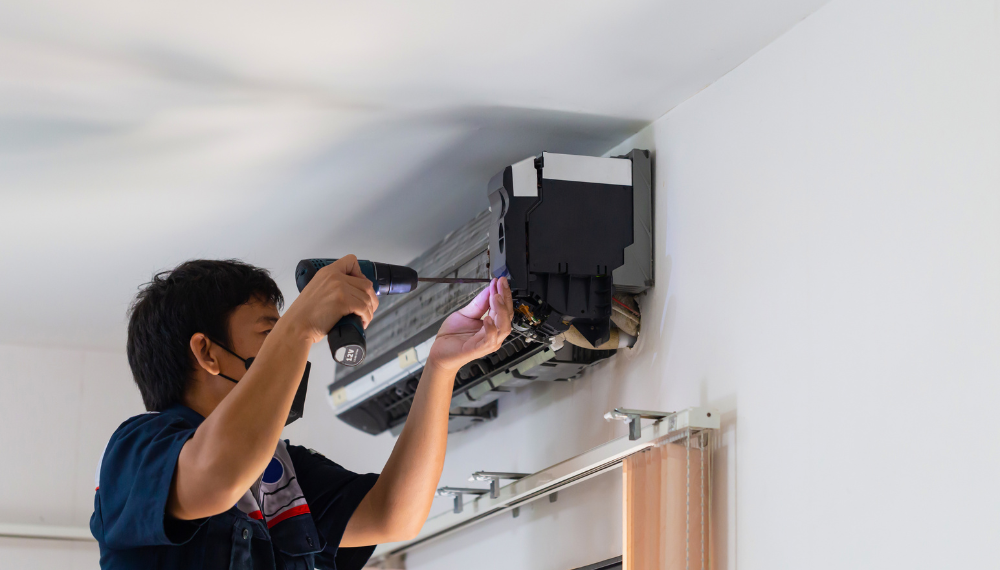Is your air conditioner not providing the cool relief you desperately need during hot summer days? If you find yourself in this frustrating situation, there could be several reasons behind it. In this article, we will explore 15 possible reasons why your AC not cooling properly and provide insights on how to address these issues.
AC Not Cooling – 15 Possible Reasons
1. Dirty Air Filters
One of the most common culprits for an underperforming air conditioner is dirty air filters. Over time, air filters accumulate dust and debris, restricting the airflow and diminishing the cooling efficiency of your AC unit. To address this issue, it is crucial to regularly check and replace your air filters. By keeping your filters clean, you ensure proper airflow and enhance cooling effectiveness. According to Mr Right, clogged air filters can significantly impact the cooling capacity of your AC system.
2. Dirty Coils
Another factor that can hinder the cooling performance of your air conditioner is dirty coils. Both the evaporator coils and condenser coils can accumulate dirt and grime over time, inhibiting the heat transfer process. This can lead to reduced cooling capacity and increased energy consumption. Regular coil cleaning and maintenance, as recommended by Hyde’s Air Conditioning, can help ensure optimal cooling efficiency.
3. Low Refrigerant Levels
Insufficient refrigerant levels can also contribute to your AC not cooling properly. Refrigerant is responsible for absorbing heat from indoor air and releasing it outside. If there is a refrigerant leak or inadequate charge, your air conditioner won’t be able to effectively cool your space. Seeking professional assistance, as advised by Terry’s AC & Heating, is crucial to address low refrigerant levels and prevent further damage to your system.
4. Damaged Heat Pump
If your air conditioning system utilizes a heat pump, a damaged heat pump can be the cause of inadequate cooling. The heat pump is responsible for transferring heat between the indoor and outdoor units. Any malfunctions or damages to the heat pump can disrupt the cooling process. It is essential to have a professional diagnose and repair any issues with the heat pump, as mentioned by Carrier.
5. Thermostat Issues
Sometimes, the problem lies not with the air conditioning unit itself but with the thermostat. Incorrect thermostat settings can prevent your AC from cooling effectively. It is essential to ensure that your thermostat is set to the correct temperature and mode. Checking and adjusting the settings, as recommended by Carrier, can help resolve cooling issues related to thermostat misconfigurations.
6. Frozen Evaporator Coil
A frozen evaporator coil can be another reason for your AC not cooling properly. This can occur due to various reasons, such as restricted airflow, refrigerant issues, or dirty coils. When the evaporator coil freezes, it obstructs the heat exchange process, leading to poor cooling performance. It is crucial to address the underlying cause of the freezing and allow the coil to thaw before restoring proper cooling functionality. Terry’s AC & Heating provides further insights into this issue.
7. Undersized Air Conditioner
An undersized air conditioner may struggle to cool a space effectively, especially if the cooling load exceeds its capacity. If your AC unit is too small for the area it is supposed to cool, it will have to work harder to maintain a comfortable temperature, leading to inadequate cooling. Consulting with professionals, as suggested by Carrier, can help determine if an upgrade to a properly sized unit is necessary.
8. Clogged Condenser Unit
The condenser unit, located outside your home, plays a crucial role in releasing the heat absorbed by the refrigerant. If the condenser unit becomes clogged with dirt, leaves, or debris, it restricts the airflow and hampers the heat dissipation process. Regularly cleaning the condenser unit and ensuring proper airflow, as advised by Hyde’s Air Conditioning, can help maintain efficient cooling performance.
9. Faulty Components
Faulty components within your air conditioning system, such as malfunctioning fans or capacitors, can also impact cooling performance. These components are essential for proper airflow and heat exchange. If they are not functioning correctly, your AC may struggle to cool effectively. Seeking professional inspection and repair, as recommended by Mr Right, can help identify and address faulty components.
10. Blocked Registers or Vents
Blocked registers or vents can impede airflow and restrict the distribution of cool air throughout your space. This can result in uneven cooling or insufficient cooling in certain areas. It is important to check and clear any obstructions from registers and vents to ensure proper airflow and maximize cooling efficiency. Terry’s AC & Heating provides further insights into this issue.
Stay tuned for the next sections where we will explore additional reasons behind an AC not cooling properly and provide you with practical tips to address these issues effectively.
Common Reasons for AC Not Cooling Properly (Continued)
11. Issues with Ductwork
The ductwork in your home plays a crucial role in delivering cool air from your air conditioner to different rooms. If there are leaks, gaps, or blockages in the ductwork, it can lead to reduced airflow and compromised cooling performance. Inspecting and sealing any leaks or repairing damaged ductwork can significantly improve the cooling efficiency of your AC system.
12. Inadequate Insulation
Insufficient insulation in your home can allow cool air to escape, making it harder for your AC to cool effectively. Poorly insulated walls, windows, and doors can contribute to heat gain from outside and decrease the overall cooling capacity. Adding insulation to your home can help create a more energy-efficient and comfortable environment.
13. Electrical Issues
Electrical problems, such as faulty wiring or issues with electrical connections, can impact the performance of your air conditioner. These issues can cause intermittent cooling, frequent breakdowns, or even complete system failure. It is crucial to have a professional electrician inspect and address any electrical problems to ensure safe and optimal operation of your AC unit.
14. Overworked Compressor
The compressor in your air conditioning system is responsible for pressurizing the refrigerant and facilitating the heat exchange process. If the compressor is overworked or damaged, it may struggle to cool your space effectively. This can result from factors such as dirty coils, low refrigerant levels, or electrical issues. Seeking professional assistance to diagnose and repair compressor problems is essential to restore proper cooling performance.
15. Lack of Regular Maintenance
Neglecting regular maintenance for your air conditioning system can lead to various issues that affect cooling performance. Dust and debris accumulation, worn-out components, and inefficient operation can all result from a lack of maintenance. Scheduling annual tune-ups and regular maintenance, as emphasized by Hyde’s Air Conditioning, is crucial to prevent problems and ensure optimal cooling efficiency.
By addressing these common issues, you can significantly improve the cooling performance of your air conditioner and create a comfortable indoor environment. In the next sections, we will provide you with practical tips and strategies to address these issues effectively and ensure your AC unit operates at its best.
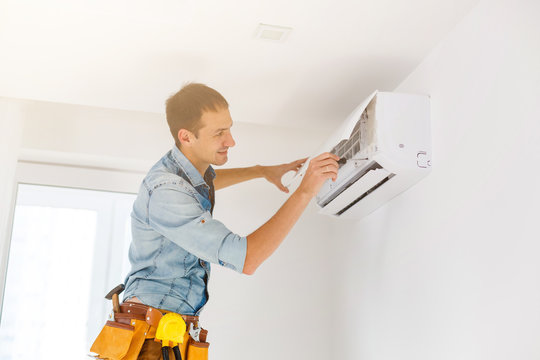
Tips to Address AC Cooling Issues
Now that we have explored some common reasons behind an AC not cooling properly, let’s delve into practical tips to address these issues and improve the cooling performance of your air conditioner.
1. Keep Your Air Filters Clean
Regularly checking and cleaning or replacing your air filters is crucial to maintain optimal airflow and cooling efficiency. Clean filters allow unrestricted passage of air, ensuring that your AC unit can effectively cool your space. Referencing Mr Right, clogged air filters can significantly impact your AC’s cooling capacity.
2. Clean Your Coils
Periodically cleaning the evaporator coils and condenser coils can help remove dirt and debris, promoting efficient heat exchange. This enables your air conditioner to cool more effectively. Follow the manufacturer’s guidelines or consult a professional for proper coil cleaning techniques.
3. Check and Recharge Refrigerant Levels
Low refrigerant levels can impair your AC’s cooling performance. If you suspect a refrigerant leak or inadequate charge, it is essential to have a professional HVAC technician inspect and recharge the refrigerant as needed. This will ensure optimal cooling functionality.
4. Schedule Professional Maintenance
Regular maintenance, including annual tune-ups, is vital to keep your air conditioning system in top shape. Professional technicians can identify and address potential issues before they escalate, ensuring efficient cooling and preventing unexpected breakdowns. As recommended by Hyde’s Air Conditioning, scheduling routine maintenance is a proactive approach to maintain the performance and longevity of your AC unit.
5. Clear Obstructions from Registers and Vents
Blocked registers and vents can restrict airflow and hinder the distribution of cool air throughout your space. Take the time to inspect and clear any obstructions, such as furniture, curtains, or debris, that may impede the airflow. This will help ensure proper cooling in all areas of your home.
6. Consider Insulation Upgrades
Improving insulation in your home can help maintain a comfortable indoor temperature and reduce the workload on your air conditioner. Upgrade insulation in walls, windows, and doors to minimize heat gain from outside and improve overall energy efficiency.
7. Consult with Professionals
If you have tried the above tips and are still experiencing cooling issues with your air conditioner, it is advisable to seek professional assistance. HVAC technicians have the expertise to diagnose and address complex problems accurately. They can recommend appropriate solutions and ensure your AC system operates at its best.
By implementing these tips, you can improve the cooling performance of your air conditioner and enjoy a comfortable environment even during the hottest days of summer. Stay tuned for the next sections where we will explore more strategies to enhance your AC’s cooling efficiency.
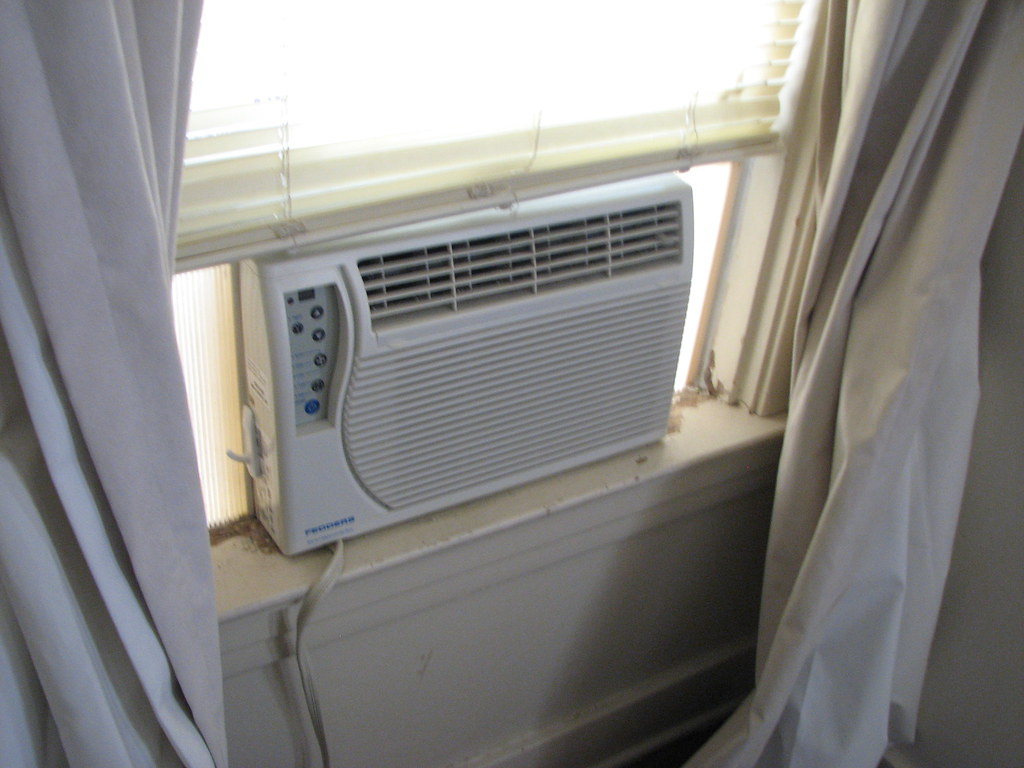
Additional Strategies to Enhance AC Cooling Efficiency
In addition to the previous tips, here are some more strategies to optimize the cooling efficiency of your air conditioner:
1. Utilize Ceiling Fans
Ceiling fans can complement your air conditioning system by promoting better air circulation and creating a cooling breeze. By using ceiling fans in conjunction with your AC, you can distribute cool air more effectively throughout your space, allowing you to set your thermostat at a slightly higher temperature without sacrificing comfort. This can help reduce energy consumption and lower your utility bills.
2. Optimize Thermostat Settings
Properly setting your thermostat can make a significant difference in your AC’s cooling effectiveness. Consider keeping your thermostat at a slightly higher temperature during the day when you are not at home or at night when you are asleep. This not only helps conserve energy but also reduces the workload on your air conditioner. Utilize programmable or smart thermostats to automatically adjust temperatures based on your schedule and preferences.
3. Close Curtains and Blinds
During the peak heat hours of the day, closing curtains and blinds can help block out sunlight and prevent heat gain inside your home. This reduces the strain on your air conditioner and allows it to cool more efficiently. Consider using light-colored or reflective curtains to further minimize heat absorption.
4. Reduce Heat-Generating Activities
Certain activities in your home, such as cooking on the stove, using the oven, or running large appliances, can generate heat and increase the workload on your AC. Minimize these activities during the hottest parts of the day or consider alternative methods, such as grilling outdoors or using countertop appliances. This can help maintain a cooler indoor environment and lessen the strain on your air conditioner.
5. Create Shade for Outdoor Units
Shading the outdoor condenser unit of your air conditioner can help improve its efficiency. Direct sunlight can cause the unit to work harder and decrease its cooling capacity. Planting trees, installing awnings, or using a shade cloth can provide protection from the sun and enhance the performance of your AC system.
6. Consider Upgrading to a More Efficient AC Unit
If your current air conditioner is older and struggling to cool your space effectively, it may be worth considering an upgrade to a more energy-efficient model. Newer AC units often come with advanced features and improved technology that can significantly enhance cooling efficiency. Look for units with high Seasonal Energy Efficiency Ratio (SEER) ratings to ensure optimal performance and energy savings.
Implementing these additional strategies can further enhance the cooling efficiency of your air conditioner and create a more comfortable living environment. Stay tuned for the following sections, where we will explore more tips and insights related to AC maintenance and troubleshooting.

Troubleshooting Common AC Cooling Issues
If you are still experiencing difficulties with your AC not cooling properly, it’s time to troubleshoot the issue. Here are some troubleshooting steps to help you identify and resolve common cooling problems:
1. Check Thermostat Settings
Start by checking your thermostat settings. Ensure that it is set to “cool” mode and the temperature is set lower than the current room temperature. If the thermostat is not functioning correctly or displaying inaccurate readings, it may be necessary to replace or recalibrate it.
2. Inspect the Air Filter
A dirty or clogged air filter can restrict airflow and hinder the cooling process. Take a look at the air filter and clean or replace it if necessary. Referencing Mr Right, a clean air filter is crucial for optimal cooling performance.
3. Check for Refrigerant Leaks
Low refrigerant levels can affect the cooling capacity of your AC system. Inspect the refrigerant lines and check for any signs of leaks, such as oil stains or hissing sounds. If you suspect a refrigerant leak, it is best to contact a professional HVAC technician to locate and repair the leak, as well as recharge the refrigerant if needed.
4. Examine the Condenser Unit
The condenser unit, located outside your home, plays a crucial role in the cooling process. Ensure that the unit is free from debris, such as leaves, dirt, or grass clippings, as they can obstruct airflow and hinder cooling efficiency. Cleaning the condenser coils and removing any obstructions can help restore proper cooling performance.
5. Check for Frozen Evaporator Coil
A frozen evaporator coil can be a common issue that prevents proper cooling. If you notice ice buildup on the evaporator coil or reduced airflow from your vents, it may indicate a problem. Turn off the AC and allow the coil to thaw completely before turning it on again. If the issue persists, it is recommended to contact a professional HVAC technician to diagnose and address the underlying cause.
6. Inspect the Blower Motor
The blower motor is responsible for circulating cool air throughout your space. If the blower motor is malfunctioning or not operating at its full capacity, it can impact cooling performance. Inspect the motor for any signs of damage or excessive dirt buildup. If needed, consult a professional to repair or replace the blower motor.
7. Ensure Proper Airflow
Proper airflow is essential for efficient cooling. Check all vents and registers in your home to ensure they are open and unobstructed. Move any furniture, rugs, or other objects that may be blocking the airflow. Additionally, check the ductwork for any leaks, gaps, or blockages that may be hindering the airflow. Sealing ductwork or contacting a professional for repairs can help optimize the cooling process.
By troubleshooting these common AC cooling issues, you can identify the root cause of the problem and take appropriate steps to resolve it. Remember, if you are unsure or unable to fix the issue on your own, it is always best to consult a professional HVAC technician for assistance.
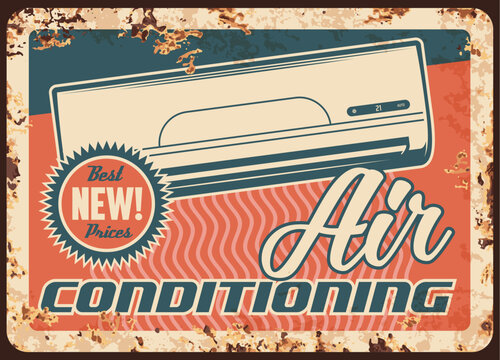
Importance of Regular AC Maintenance
Regular maintenance is crucial for ensuring the optimal performance and longevity of your air conditioning system. By scheduling routine maintenance, you can address potential issues before they become major problems and keep your AC running smoothly. Here’s why regular AC maintenance is essential:
1. Improve Energy Efficiency
Regular maintenance helps keep your air conditioner operating at peak efficiency. During a maintenance visit, the technician will clean the coils, check refrigerant levels, and inspect various components to ensure everything is working properly. By maintaining clean coils and proper refrigerant levels, your AC can cool your space more efficiently, reducing energy consumption and lowering your utility bills.
2. Extend the Lifespan of Your AC
Proper maintenance can significantly extend the lifespan of your air conditioning system. By addressing minor issues and performing necessary repairs during routine maintenance, you can prevent major breakdowns and increase the overall durability of your unit. This can save you money on costly repairs or premature replacement.
3. Enhance Indoor Air Quality
Regular maintenance includes cleaning or replacing air filters, which helps improve indoor air quality. Clean filters remove dust, allergens, and other particles from the air, ensuring cleaner and healthier indoor air for you and your family. Improved indoor air quality can reduce allergy symptoms and promote better respiratory health.
4. Prevent Costly Breakdowns
During a maintenance visit, the technician will thoroughly inspect your AC system, identifying any potential issues or worn-out components. By addressing these problems early on, you can prevent unexpected breakdowns and the inconvenience they bring. It is always more cost-effective to fix minor issues during routine maintenance rather than waiting for a major breakdown to occur.
5. Maintain Warranty Coverage
Many air conditioning manufacturers require regular maintenance to keep the warranty valid. Skipping maintenance visits can void the warranty, leaving you responsible for any repairs or replacements. It is important to read and understand the warranty terms and ensure you follow the manufacturer’s maintenance requirements to protect your investment.
6. Ensure Safe Operation
Regular maintenance not only improves the performance of your AC but also ensures its safe operation. The technician will inspect electrical connections, tighten loose components, and check for any potential safety hazards. This helps prevent electrical issues, overheating, or other dangerous situations that could pose a risk to your home and family.
By prioritizing regular AC maintenance, you can enjoy the benefits of improved energy efficiency, extended equipment lifespan, enhanced indoor air quality, and peace of mind knowing that your air conditioner is operating safely and reliably. Don’t overlook the importance of professional maintenance to keep your AC in optimal condition.
Seeking Professional Help
If you have tried troubleshooting and maintenance tips but your AC still isn’t cooling properly, it may be time to seek professional assistance. HVAC technicians are trained to diagnose and resolve complex issues with air conditioning systems. Here’s why it’s important to reach out to a professional:
1. Expert Diagnosis and Repair
HVAC professionals have the knowledge and experience to accurately diagnose the root cause of your AC cooling problems. They can identify issues that may not be apparent to the untrained eye and provide effective solutions. By hiring a professional, you can have peace of mind knowing that your AC will receive proper care and repair.
2. Safety and Compliance
Working with air conditioning systems involves electrical components, refrigerants, and complex machinery. HVAC technicians are familiar with safety protocols and regulations to ensure that repairs are conducted safely and in compliance with industry standards. Attempting to fix AC issues on your own without the necessary expertise can pose safety risks and may not adhere to local codes and regulations.
3. Access to Specialized Tools and Parts
HVAC professionals have access to specialized tools and equipment designed for diagnosing and repairing air conditioning systems. They also have knowledge of various AC models and their specific parts. This allows them to efficiently identify and replace faulty components, ensuring that your AC is restored to proper working condition.
4. Prevent Further Damage
If you continue to operate your AC while it’s not cooling properly, you risk causing further damage to the system. This can lead to more extensive repairs and higher costs down the line. By calling a professional at the first sign of trouble, you can prevent additional damage and avoid unnecessary expenses.
5. Maintenance and Service Plans
Many HVAC companies offer maintenance and service plans that provide regular check-ups and tune-ups for your air conditioning system. These plans can help prevent future cooling issues and extend the lifespan of your AC. HVAC professionals can provide recommendations and schedule routine visits to keep your AC running smoothly year-round.
When your AC is not cooling properly, it’s important to recognize your limitations and seek professional help. HVAC technicians have the expertise, tools, and experience to diagnose and repair complex cooling issues, ensuring your comfort and the longevity of your air conditioning system. Contact a reputable HVAC company to schedule a service appointment and get your AC back to its optimal cooling performance.
Tips for Preventing AC Cooling Issues
Prevention is key when it comes to maintaining the optimal performance of your air conditioning system. By following these tips, you can minimize the risk of cooling issues and extend the lifespan of your AC:
1. Regularly Clean and Replace Air Filters
Keeping your air filters clean is essential for proper airflow and efficient cooling. Dust and debris can accumulate on the filters, obstructing airflow and reducing cooling performance. Clean or replace your air filters according to the manufacturer’s recommendations or at least every three months.
2. Clear Obstructions Around the Outdoor Unit
Ensure that the outdoor unit of your AC is free from any obstructions. Trim back vegetation, clear debris, and maintain a clearance of at least two feet around the unit. This allows for proper airflow and prevents the unit from overheating.
3. Schedule Annual Professional Maintenance
Regular maintenance by a professional HVAC technician is crucial for keeping your AC in top shape. Schedule an annual maintenance visit to have your system inspected, cleaned, and tuned up. This will help identify and address any potential issues before they become major problems.
4. Keep Vents and Registers Clear
Ensure that all vents and registers are clear and unobstructed by furniture, curtains, or other objects. Blocked vents can disrupt the airflow and reduce the cooling capacity of your AC. Regularly check and clean the vents to maintain efficient cooling performance.
5. Monitor Thermostat Settings
Be mindful of the thermostat settings and adjust them accordingly. Avoid setting the temperature too low, as it can strain the AC system and lead to cooling problems. Additionally, consider using a programmable thermostat to optimize energy usage and maintain a comfortable indoor environment.
6. Avoid Overworking Your AC
Avoid overworking your air conditioner by minimizing heat sources in your home. Use blinds or curtains to block direct sunlight, limit the use of heat-generating appliances during peak hours, and consider using fans to help circulate cool air. By reducing the workload on your AC, you can prevent unnecessary strain and potential cooling issues.
7. Address Issues Promptly
If you notice any signs of cooling problems, such as reduced airflow or warm air coming from the vents, address them promptly. Ignoring these issues can lead to further damage and more costly repairs. Contact a professional HVAC technician to diagnose and resolve the problem.
By implementing these preventive measures, you can minimize the risk of AC cooling issues and ensure that your air conditioning system operates efficiently and effectively. Taking proactive steps to maintain your AC will not only keep you cool and comfortable but also save you money in the long run.

Conclusion
In conclusion, when your AC is not cooling properly, it can be frustrating and uncomfortable. However, there are several possible reasons behind this issue, and it’s important to troubleshoot and address them accordingly. From thermostat settings and dirty filters to refrigerant leaks and compressor issues, each potential cause requires specific attention.
Regular maintenance is key to ensuring the optimal performance of your air conditioning system. By scheduling routine maintenance, you can address minor issues before they become major problems and keep your AC running smoothly. Remember to clean or replace air filters regularly, clear obstructions around the outdoor unit, and schedule annual professional maintenance.
If your AC cooling problems persist despite troubleshooting and maintenance efforts, it’s time to seek professional help. HVAC technicians have the expertise, tools, and experience to accurately diagnose and repair complex cooling issues. They can ensure the safety and compliance of the repairs and prevent further damage to your system.
By following preventive tips, such as regularly cleaning air filters, keeping vents and registers clear, and monitoring thermostat settings, you can minimize the risk of cooling issues and extend the lifespan of your AC. Avoid overworking your AC and address any issues promptly to prevent further damage.
Remember, the key to maintaining a properly functioning AC is regular maintenance, prompt attention to issues, and seeking professional help when needed. By taking these steps, you can enjoy a cool and comfortable indoor environment even during the hottest days of summer.
Note: The information in this article is based on the sources listed below. Please refer to these sources for more detailed information and recommendations.
- Hyde’s Air Conditioning & Heating: Air Conditioner Not Cooling Properly? Here Are 7 Common Explanations
- Carrier: Air Conditioner Not Cooling? Here’s Why and What to Do
- Mr Right: 8 Possible Reasons Behind AC Not Cooling Properly
- Supertech HVAC: AC Not Cooling? Common Air Conditioner Problems
- Terry’s AC and Heating: AC Not Blowing Cold Air? 5 Reasons Why

Frequently Asked Questions (FAQs)
Here are some frequently asked questions about AC not cooling properly:
1. Why is my AC blowing warm air?
There could be several reasons why your AC is blowing warm air. It could be due to thermostat settings, refrigerant leaks, a malfunctioning compressor, or a frozen evaporator coil. It’s best to troubleshoot these issues or seek professional help to diagnose and resolve the problem.
2. How often should I clean or replace my air filters?
Air filters should be cleaned or replaced every three months or according to the manufacturer’s recommendations. However, if you have pets, live in a dusty environment, or have allergies, you may need to clean or replace them more frequently.
3. Can I fix AC cooling issues on my own?
Some minor AC cooling issues, such as cleaning air filters or clearing obstructions around the outdoor unit, can be resolved by homeowners. However, for more complex issues like refrigerant leaks or compressor problems, it’s best to seek professional help to avoid further damage or safety risks.
4. How can I improve the efficiency of my AC?
To improve the efficiency of your AC, you can:
– Clean or replace air filters regularly
– Clear obstructions around the outdoor unit
– Schedule annual professional maintenance
– Use a programmable thermostat
– Minimize heat sources in your home
– Keep vents and registers clear
5. What is the average lifespan of an AC unit?
The average lifespan of an AC unit is typically around 10 to 15 years. However, regular maintenance and proper care can extend its lifespan. If your AC is older and experiencing frequent cooling issues, it may be time to consider a replacement.
6. How can I find a reliable HVAC technician?
To find a reliable HVAC technician, you can:
– Ask for recommendations from friends, family, or neighbors
– Check online reviews and ratings of local HVAC companies
– Ensure the technician is licensed and insured
– Inquire about their experience and certifications
– Request a written estimate before any work is done
7. Is it necessary to have regular professional maintenance for my AC?
Regular professional maintenance is highly recommended for your AC. It helps identify and address potential issues before they lead to major problems. Additionally, professional maintenance can improve the efficiency and lifespan of your AC, saving you money in the long run.
These are just a few common FAQs about AC not cooling properly. If you have any specific concerns or questions about your AC, it’s always best to consult with a professional HVAC technician who can provide tailored advice and solutions.

Common Reasons for AC Not Cooling Properly
There are several common reasons why an AC may not be cooling properly. Understanding these reasons can help you troubleshoot and address the issue effectively.
1. Dirty Air Filters
Dirty air filters can restrict airflow and reduce the cooling capacity of your AC. Over time, dust, dirt, and debris accumulate on the filters, obstructing the air passage. Cleaning or replacing the air filters regularly is essential for maintaining proper airflow and efficient cooling.
2. Dirty Coils
The evaporator coil and condenser coil in your AC can accumulate dirt and debris over time, hindering heat transfer. This can result in reduced cooling efficiency. Regularly cleaning the coils can improve their performance and ensure optimal cooling.
3. Refrigerant Leaks
Refrigerant is responsible for absorbing and releasing heat in the cooling process. If there is a refrigerant leak in your AC system, it can hinder the cooling process and lead to inadequate cooling. A professional HVAC technician should be contacted to identify and fix any refrigerant leaks.
4. Compressor Issues
The compressor is the heart of your AC system. If the compressor is not functioning properly, it can affect the cooling performance. Common compressor issues include electrical problems, motor failure, or low refrigerant levels. A professional technician should diagnose and repair compressor issues.
5. Thermostat Settings
Incorrect thermostat settings can result in inadequate cooling. Ensure that the thermostat is set to the desired temperature and cooling mode. Additionally, check if the thermostat is calibrated correctly and consider upgrading to a programmable thermostat for more precise control.
6. Inadequate Insulation
Insufficient insulation in your home can lead to heat gain, making it harder for your AC to cool the space effectively. Check for any areas with inadequate insulation, such as windows, doors, or walls, and consider improving insulation to enhance cooling efficiency.
7. Undersized AC Unit
An AC unit that is too small for the space it needs to cool may struggle to cool the area adequately. It’s important to ensure that your AC unit is properly sized for your home. A professional HVAC technician can help determine the appropriate size and recommend a suitable replacement if necessary.
8. Blocked Air Vents or Registers
Blocked air vents or registers can restrict airflow and impact cooling performance. Check for any obstructions, such as furniture, curtains, or debris, and ensure that the vents are clear and unobstructed.
By understanding these common reasons for AC not cooling properly, you can take appropriate measures to troubleshoot and resolve the issue. If the problem persists or you are unsure about how to address it, it is recommended to seek professional assistance from an HVAC technician.
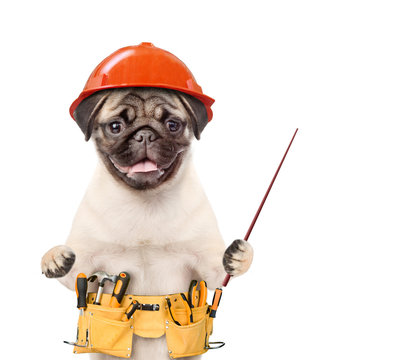
Importance of Regular AC Maintenance
Regular maintenance is crucial for ensuring the optimal performance and longevity of your AC system. Here are several reasons why regular AC maintenance is important:
1. Prevents Issues and Breakdowns
Regular maintenance helps identify and address potential issues before they escalate into major problems. HVAC technicians can inspect your AC system, clean components, and perform necessary repairs or adjustments. This proactive approach can prevent unexpected breakdowns and costly repairs down the line.
2. Improves Energy Efficiency
A well-maintained AC system operates more efficiently, resulting in lower energy consumption and reduced utility bills. During maintenance, technicians clean or replace air filters, check refrigerant levels, and ensure proper airflow. These steps optimize the cooling process and help your AC run at its best efficiency.
3. Enhances Cooling Performance
By keeping components clean and in good condition, regular maintenance ensures that your AC can cool your home effectively. Cleaning the coils and removing debris improves heat transfer, allowing the system to cool efficiently. This helps maintain a comfortable indoor environment, especially during hot summer months.
4. Extends Lifespan of the AC System
Just like any other mechanical system, regular maintenance can significantly extend the lifespan of your AC. By addressing minor issues and ensuring proper functioning, maintenance reduces wear and tear on components, helping them last longer. This means you can enjoy the benefits of your AC system for years to come.
5. Improves Indoor Air Quality
During maintenance, technicians clean or replace air filters, which play a crucial role in filtering dust, allergens, and pollutants from the air. By keeping the filters clean, regular maintenance improves indoor air quality, creating a healthier living environment for you and your family.
6. Maintains Warranty Coverage
Many AC manufacturers require regular maintenance as a condition for warranty coverage. By scheduling annual maintenance with a professional HVAC technician, you ensure that your warranty remains valid. This can save you from expensive out-of-pocket repairs in case of any covered issues.
7. Peace of Mind
Knowing that your AC system has been properly maintained gives you peace of mind. You can rely on your AC to cool your home efficiently, and you can trust that any potential issues have been addressed. Regular maintenance allows you to enjoy a comfortable and worry-free indoor environment.
By investing in regular AC maintenance, you can enjoy the benefits of improved energy efficiency, enhanced cooling performance, and extended lifespan. Don’t overlook the importance of routine maintenance and consider scheduling annual maintenance with a trusted HVAC professional.
Tips for Maintaining Your AC System
Proper maintenance of your AC system can help ensure its optimal performance and longevity. Here are some tips to keep your AC running smoothly:
1. Clean or Replace Air Filters Regularly
Clean or replace your air filters every three months or as recommended by the manufacturer. Dirty filters restrict airflow and reduce cooling efficiency. Regular maintenance of air filters improves indoor air quality and helps your AC system operate efficiently.
2. Clear Obstructions Around the Outdoor Unit
Ensure that the outdoor unit of your AC system is free from any obstructions such as leaves, debris, or overgrown vegetation. Clearing the area around the unit promotes proper airflow and prevents potential issues caused by restricted airflow.
3. Schedule Professional Maintenance Annually
Schedule annual professional maintenance for your AC system. A qualified HVAC technician can inspect your system, clean components, check refrigerant levels, and perform necessary adjustments or repairs. Regular maintenance helps identify and address any potential issues before they escalate.
4. Keep Vents and Registers Clear
Ensure that vents and registers in your home are clear and unobstructed. Blocked vents can restrict airflow and negatively impact cooling performance. Check for any furniture, curtains, or other objects that may be obstructing the airflow and reposition them accordingly.
5. Check Thermostat Settings
Regularly check and adjust thermostat settings to ensure that your AC system is operating at the desired temperature. Consider upgrading to a programmable thermostat for greater control and energy savings.
6. Monitor and Control Humidity Levels
Excess humidity can make your home feel uncomfortable and put extra strain on your AC system. Use dehumidifiers or consider installing a whole-house dehumidification system to maintain optimal humidity levels.
7. Protect Your AC System During Winter
If you live in a region with cold winters, take steps to protect your AC system during the offseason. Cover the outdoor unit with a waterproof cover or invest in a dedicated AC cover to prevent damage from snow, ice, or debris.
8. Avoid Overworking Your AC
Avoid overworking your AC system by minimizing heat sources in your home. Close curtains or blinds during the hottest parts of the day to prevent excessive heat gain. Use fans or ceiling fans to supplement cooling and circulate air.
By following these maintenance tips, you can ensure the proper functioning and longevity of your AC system. Remember, if you’re unsure about any maintenance tasks or need assistance, it’s always best to consult with a professional HVAC technician.
Signs That You Need Professional Help
While regular maintenance and troubleshooting can resolve many AC issues, there are times when professional help is necessary. Here are some signs that indicate you should seek assistance from a qualified HVAC technician:
1. Insufficient Cooling
If your AC system is not providing adequate cooling despite proper maintenance and troubleshooting, it’s time to call a professional. Issues such as refrigerant leaks, compressor problems, or faulty components may require professional expertise to diagnose and repair.
2. Strange Noises
Unusual noises coming from your AC system can indicate underlying issues. Grinding, squealing, or banging noises may suggest problems with the fan motor, compressor, or loose components. It’s best to have a professional technician inspect and address these issues to prevent further damage.
3. Frequent Cycling On and Off
If your AC system frequently cycles on and off without reaching the desired temperature, it could indicate a problem with the thermostat, compressor, or refrigerant levels. A professional can diagnose the issue and recommend appropriate repairs or adjustments.
4. Frozen Evaporator Coil
A frozen evaporator coil is a common issue that can result from various factors, such as restricted airflow, low refrigerant levels, or a malfunctioning blower fan. Professional assistance is necessary to identify the root cause and address the issue effectively.
5. Foul Odors
Persistent foul odors coming from your AC system may indicate mold or mildew growth, a dead animal in the ductwork, or other issues. These odors can affect indoor air quality and may require professional cleaning or repairs to eliminate the source of the smell.
6. Electrical Issues
If you experience electrical problems such as frequent tripping of circuit breakers or flickering lights when your AC is running, it’s essential to seek professional help. Electrical issues can pose safety hazards and should be addressed by a qualified technician.
7. High Energy Bills
Significantly higher energy bills without any changes in usage patterns can indicate inefficiencies or malfunctions in your AC system. A professional technician can assess your system’s energy efficiency, identify areas of improvement, and recommend solutions to reduce energy consumption.
8. System Age and Lack of Maintenance
If your AC system is old or hasn’t received regular maintenance, it may be more prone to breakdowns and inefficiencies. In such cases, it’s advisable to consult with a professional technician who can assess the condition of your system and recommend appropriate repairs or replacements.
Remember, attempting to fix complex AC issues without proper knowledge and expertise can potentially worsen the problem or even pose safety risks. It’s always best to leave certain tasks to the professionals who can diagnose, repair, or replace components as needed.

When to Consider Replacing Your AC System
While regular maintenance and repairs can extend the lifespan of your AC system, there comes a time when replacement is the best option. Here are some factors to consider when determining if it’s time to replace your AC system:
1. Age of the AC System
The age of your AC system is an important consideration. Most AC units have a lifespan of 10-15 years. If your system is approaching or exceeding this timeframe, it may be more cost-effective to replace it rather than continue costly repairs.
2. Frequent Breakdowns and Costly Repairs
If you find yourself frequently calling for repairs or the repair costs are becoming significant, it may be a sign that your AC system is nearing the end of its lifespan. Investing in a new, more reliable system can save you money in the long run.
3. Inefficiency and High Energy Bills
Older AC systems tend to be less energy-efficient, resulting in higher utility bills. If you notice a significant increase in your energy costs despite proper maintenance, it may be more cost-effective to replace your system with a newer, more energy-efficient model.
4. Outdated Technology
Advancements in technology have led to more energy-efficient and environmentally friendly AC systems. If your current system lacks features such as programmable thermostats, smart controls, or energy-saving options, upgrading to a newer system can provide greater comfort and energy savings.
5. Inconsistent Cooling and Comfort Issues
If certain rooms in your home consistently feel too hot or too cold, it may indicate that your AC system is struggling to distribute air evenly. Upgrading to a properly sized and balanced system can resolve these comfort issues and provide consistent cooling throughout your home.
6. Environmental Considerations
If your current AC system uses R-22 refrigerant (commonly known as Freon), it’s important to be aware that it is being phased out due to its harmful effect on the ozone layer. Upgrading to a system that uses more environmentally friendly refrigerants can help reduce your carbon footprint.
7. Home Renovations or Additions
If you have made significant renovations or additions to your home that have increased its square footage, your current AC system may no longer be able to efficiently cool the larger space. Upgrading to a system with a higher capacity can ensure optimal comfort in your expanded living area.
8. Consultation with a Professional
When in doubt, it’s best to consult with a professional HVAC technician. They can assess the condition of your AC system, consider factors such as repair costs, energy efficiency, and comfort, and provide expert advice on whether repair or replacement is the best course of action.
Remember, replacing an AC system is a significant investment, but it can provide long-term benefits in terms of improved comfort, energy efficiency, and cost savings. Consider these factors and consult with a trusted HVAC professional to make an informed decision about replacing your AC system.

Conclusion
Maintaining a properly functioning AC system is essential for staying comfortable during the hot summer months. By following the tips provided in this article, you can troubleshoot common issues, perform regular maintenance, and ensure efficient cooling in your home.
Remember, always consult the manufacturer’s guidelines and, if needed, seek assistance from a professional HVAC technician for complex repairs or when in doubt. Regular maintenance, including cleaning or replacing air filters, clearing obstructions around the outdoor unit, scheduling professional tune-ups, and keeping vents and registers clear, can go a long way in maintaining the performance and longevity of your AC system.
In cases where the AC system is not cooling properly despite your best efforts, it’s important to recognize the signs that indicate the need for professional help. Insufficient cooling, strange noises, frequent cycling on and off, frozen evaporator coils, foul odors, electrical issues, high energy bills, and an aging system are all indications that it’s time to seek assistance from a qualified HVAC technician.
If your AC system is outdated, inefficient, or experiencing frequent breakdowns, it may be time to consider replacing it with a newer, more energy-efficient model. Factors such as the age of the system, frequent repairs, inefficiency, outdated technology, inconsistent cooling, environmental considerations, and home renovations or additions should all be taken into account when making the decision to replace your AC system.
In conclusion, regular maintenance, troubleshooting, and timely repairs are key to ensuring that your AC system cools your home effectively. However, there may come a point where professional help or a system upgrade is necessary. By staying proactive and addressing issues promptly, you can enjoy a comfortable and cool living space throughout the summer.
For more helpful articles and tips on home maintenance, HVAC systems, and energy efficiency, be sure to check out our other great content.
Remember, a well-maintained AC system is the key to a cool, comfortable home. Stay cool and enjoy the summer!
Questions & Answers
Who should I contact if my AC is not cooling properly?
Contact a professional HVAC technician for assistance.
What could be causing my AC to not cool properly?
Possible causes include dirty coils, low refrigerant, or a faulty compressor.
How can I troubleshoot my AC if it’s not cooling properly?
Check the thermostat settings, clean or replace air filters, and ensure proper airflow.
Who can help me determine if my AC needs to be replaced?
Consult with a trusted HVAC technician for an assessment and expert advice.
What are common signs that my AC system needs replacement?
Signs include frequent breakdowns, inefficiency, and high energy bills.
How can I improve my AC’s cooling performance?
Ensure regular maintenance, clean the outdoor unit, and keep vents clear for proper airflow.
Can’t I fix my AC cooling issues on my own?
While some troubleshooting can be done, professional expertise ensures proper diagnosis and repairs.

